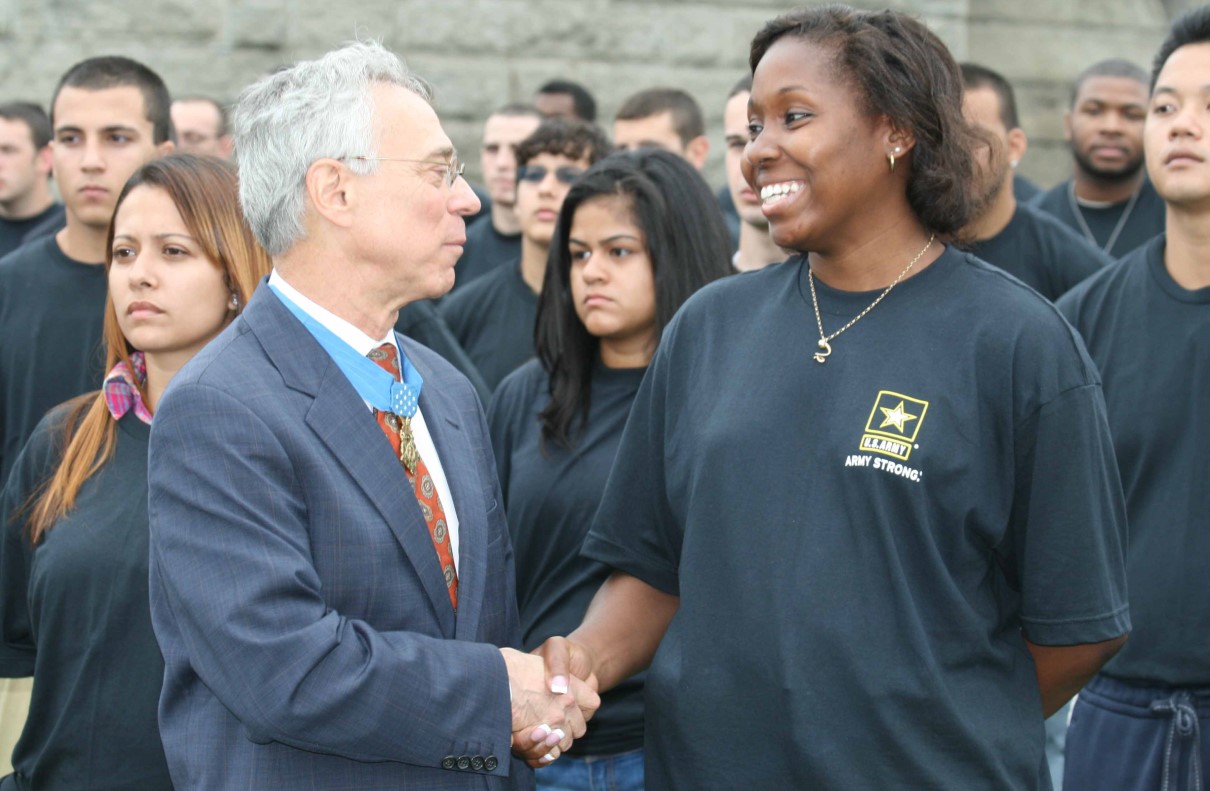The Medal of Honor presented to retired Army Col. Jack Jacobs for his valor during the Vietnam War is a proud mark of his service, but more than anything, he hopes he can inspire the next generation through his virtues.
As he and other Medal of Honor recipients have aged, they've feared people will only remember the medal, not the drive behind their efforts. More than 3,500 individuals have received the highest military award for valor; of those, just 72 are living.
“We decided if we were going to have a positive influence on the next generation, we'd better act sooner rather than later,” said Jacobs, a Life Member of MOAA.
Jacobs, along with several other recipients, helped establish the Medal of Honor Foundation's Character Development Program, which teaches children the concepts of courage, commitment, sacrifice, patriotism, integrity, and citizenship. The program also aims to raise awareness about the military.
“We're not trying to convince kids to join the military, but to teach them the kinds of attitude that will make a successful society, whether they join the military or not,” he said. “We thought the only way we could affect the future was through education.”
Among his assignments, Jacobs served as an infantry officer for the 82nd Airborne Division at Fort Bragg, N.C., commanded units in Panama, and deployed to Vietnam twice. While in Vietnam, Jacobs was an adviser to a Vietnamese infantry unit and later the senior advisor to the first airborne unit of the Vietnamese airborne division.
During Jacobs' first deployment to Vietnam as a first lieutenant in 1968, his company came under heavy fire from an enemy force entrenched in fortified bunkers. With his commander disabled and his disorganized unit taking heavy casualties, Jacobs called for and directed an air support mission from his position with the leading company.
Jacobs suffered mortar fragments to the head and arms, but he took command of the company and ordered a withdrawal and the establishment of a defense line at a more secure position. His vision was impaired by mortar blasts, but he repeatedly ran across open rice paddies to evacuate more than 12 wounded troops.
He encountered and eliminated Viet Cong squads three times during the March engagement, according to his Medal of Honor citation.
On Oct. 9, 1969, Jacobs was formally presented the Medal of Honor by President Richard Nixon.
Jacobs wants to pass on the virtues that helped him persevere in the face of danger.
The foundation worked with teachers to develop the Character Development program, which can be broken up into different sections for lesson plans. It can be used in any course of study, Jacobs said.
For all of the students who go through the program, Jacobs said he hopes they learn to rely on each other, and to have courage in the face of adversity, such as bullying.
“We want to make sure the next generation understands that there's something more important and bigger than they are,” he said. “Our objective is to pass onto the next generation the values that make this country what it is.”
Teachers, school administrators and other education professionals can request a Character Development kit here.
Amanda Dolasinski is MOAA's staff writer. She can be reached at amandad@moaa.org. Follow her on Twitter @AmandaMOAA.
